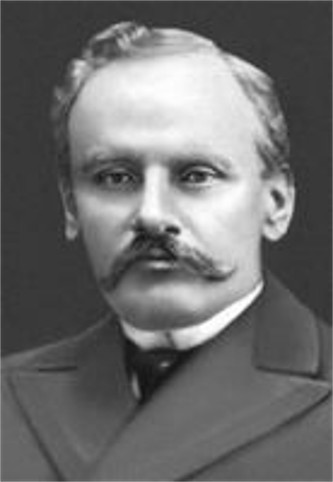Shakhmatov, Aleksei
Shakhmatov, Aleksei [Шахматов, Алекей; Šaxmatov, Aleksej], b 17 June 1864 in Narva, Saint Petersburg gubernia, d 16 August 1920 in Petrograd. Russian Slavist and linguist; from 1897 member of the Russian Academy of Sciences (RAS). After receiving his doctorate from Moscow University (1894) he worked in the Division of Russian Language and Literature of RAS, as head of the division in 1906–20, and as editor of the academy's Russian dictionary in 1897–1907. From 1908 he was a professor at Saint Petersburg University. He was basically a neogrammarian, although he combined the neogrammarian and philological methods in his historical-linguistic studies. He viewed Ukrainian and Belarusian as the major north and south Russian dialectal groups and examined their origins within the historical framework of the Russian language. Finding little historical evidence for his theories, Shakhmatov repeatedly changed his views and rejected his previous works.
His views on the origins of Ukrainian changed least: he consistently held that it developed out of the autochthonous ‘southern dialect’ of the ‘common ancient Russian’ language (see Common Russian). But, he situated its source sometimes between the Prut River and the lower Dnipro River, and at other times farther north, in the middle Dnipro Basin. During the first half of the 20th century, the Shakhmatov school was the most influential linguistic school in Russia and the Union of Soviet Socialist Republics. It included some Ukrainian linguists, such as Vsevolod Hantsov and, to a degree, Leonid Bulakhovsky. Also significant for Ukrainian studies was Shakhmatov's textual criticism of the medieval Kyivan Rus’ chronicles, particularly of the Primary Chronicle, which is known today only from copies from 1377 onwards. He presented a synthesizing survey and a reconstruction of these chronicles in Razyskaniia o drevneishikh russkikh letopisnykh svodakh (Research on the Oldest Rus’ Chronicle Compilations, 1905–8), Povest’ vremennykh let (The Tale of Bygone Years, 1916), and Obozrenie russkikh letopisnykh svodov XIV–XVI vv. (Survey of 14th- to 16th-Century Rus’ Chronicle Compilations, 1938).
His most important publications on the Ukrainian language consist of an article on the dispalatalization of consonants before e and i (1903), a short survey of the history of Ukrainian in the encyclopedic compendium Ukrainskii narod v ego proshlom i nastoiashchem (The Ukrainian People in Its Past and Present, 1916), and detailed reviews of Ahatanhel Krymsky's and Stepan Smal-Stotsky's grammars and of the manuscript of Borys Hrinchenko's four-volume Ukrainian-Russian dictionary (which made possible its publication). He sat on the RAS committee that recommended the abolition of tsarist restrictions on Ukrainian publications (in 1905–6) and on the commission that verified Pylyp Morachevsky's Ukrainian translation of the Gospel. Shakhmatov's attitude toward Ukrainian was in keeping with his liberal politics and his support of the cultural rights of all the peoples in the Russian Empire. He opposed the empire's dismemberment, however, and after the February Revolution of 1917 he was a vocal opponent of the Ukrainian independence movement.
BIBLIOGRAPHY
Izvestiia Otdeleniia russkogo iazyka i slovesnosti Rossiiskoi akademii nauk, 25 (1922) [collection of articles about Shakhmatov]
Obnorskii, S. (ed). A.A. Shakhmatov, 1864–1920: Sbornik statei i materialov (Moscow–Leningrad 1947)
Tymoshenko, P. ‘O.O. Shakhmatov i ukraïns’ka mova,’ Ukraïns’ka mova v shkoli, 1956, no. 4
George Yurii Shevelov
[This article originally appeared in the Encyclopedia of Ukraine, vol. 4 (1993).]
